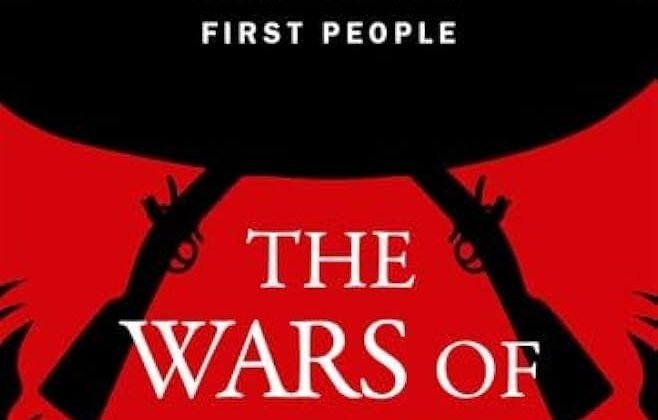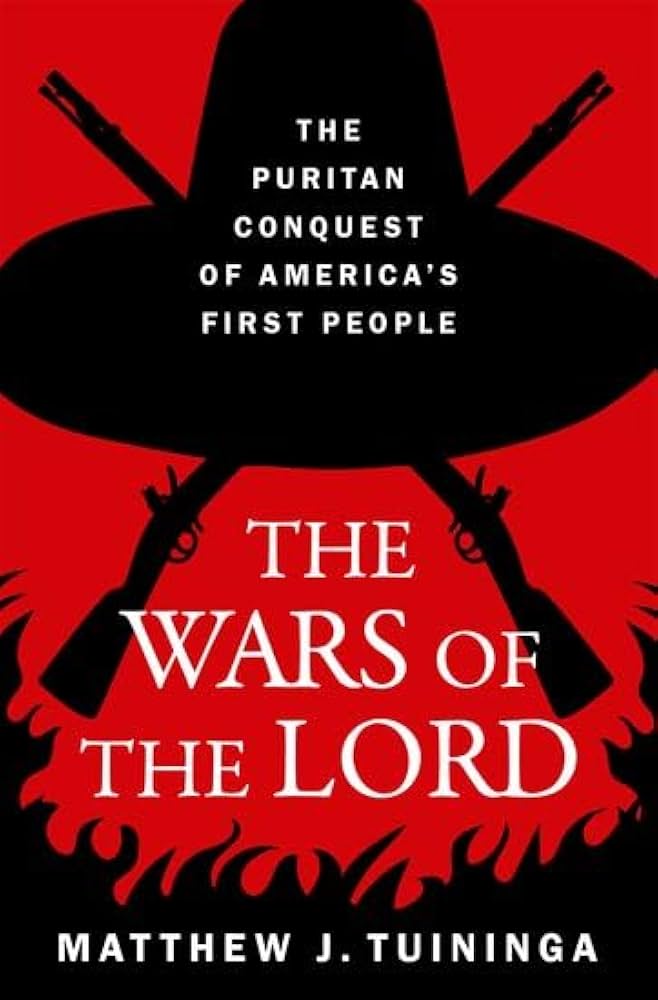

Matthew J. Tuininga is Professor of Christian Ethics and the History of Christianity at Calvin Theological Seminary. This interview is based on his new book, The Wars of the Lord: The Puritan Conquest of America’s First People (Oxford University Press, 2025).
JF: What led you to write The Wars of the Lord?
MT: After writing about John Calvin’s political theology in my first book, I was originally interested in how the Puritans thought about colonialism from a religious standpoint. However, I quickly discovered how complicated, fascinating, and devastating Puritan colonialism really was. It is a story that few people know. What especially intrigued me was the realization that many scholars 1) focus on the religious life of the Puritans while ignoring their dealings with Native Americans or 2) write about colonialism without really understanding the Puritans as religious people who cared deeply about saving Native souls. This leads to a distorted understanding of who the Puritans were and why they treated Indians the way they did, not to mention of how Indians, many of whom became Christians, experienced colonialism. I wanted to tell the story in a way that is honest about the role Puritan Christianity played in colonialism.
JF: In 2 sentences, what is the argument of The Wars of the Lord?
MT: The wars through which the Puritans subjugated New England’s Native peoples were inseparable from the spiritual warfare the Puritans were waging to win Native souls for Christ. English and Indians alike experienced colonialism as a religious conflict from start to finish.
JF: Why do we need to read The Wars of the Lord?
MT: Americans continue to argue about the meaning of America and the role Christianity has played in it. Yet all too often we oversimplify the story by either valorizing or demonizing the various players. We like our history like a Marvel movie – with heroes and villains. Were the early colonists heroic, pious Christians pursuing liberty and prosperity in a new world? Or were they greedy, bigoted opportunists seeking to exploit Native Americans and seize their land? The answer is neither, and both. The Wars of the Lord tells this story honestly in all its complexity, without reducing its characters to heroes or villains. If readers want to understand how colonization actually happened, this book is an excellent place to start.
JF: Why and when did you become an American historian?
MT: I became an American historian in the process of writing this book. But American history has always been a major area of study for me, so the evolution was natural. It all started when I was 10 years old and my father took me to the 130th Anniversary reenactment of the Battle of Gettysburg. I was utterly captivated by the drama, and while my interests expanded well beyond the Civil War, the fascination has never left me. I majored in history in college, and history was a major component of my first book. But it was while writing The Wars of the Lord that I came to love working through the letters, diaries, and original records without which we could not write history at all.
JF: What is your next project?
MT: I am researching how Presbyterians in North Carolina and Virginia experienced and navigated slavery, secession, and the Civil War. Yes, I’m coming back to what first fascinated me as a ten year old. The project is in its very early stages, but as with The Wars of the Lord, I’m not simply interested in what the preachers, theologians, and churches said or did. I want to tell the story as ordinary Presbyterians experienced it: women, men, farmers, merchants, soldiers, and, where possible, slaves and free Blacks.
JF: Thanks, Matthew!